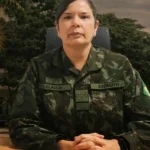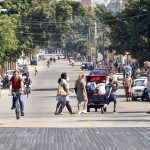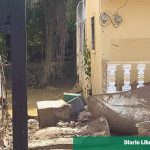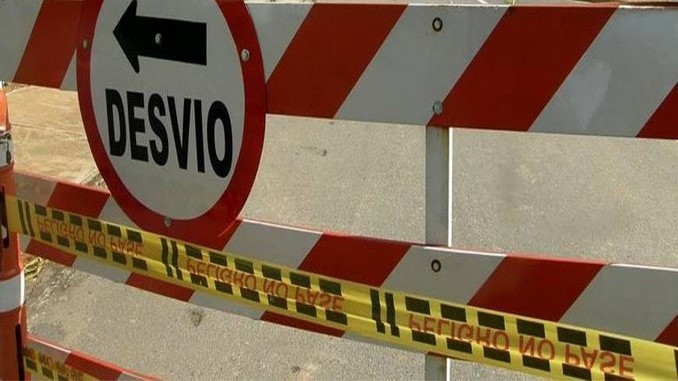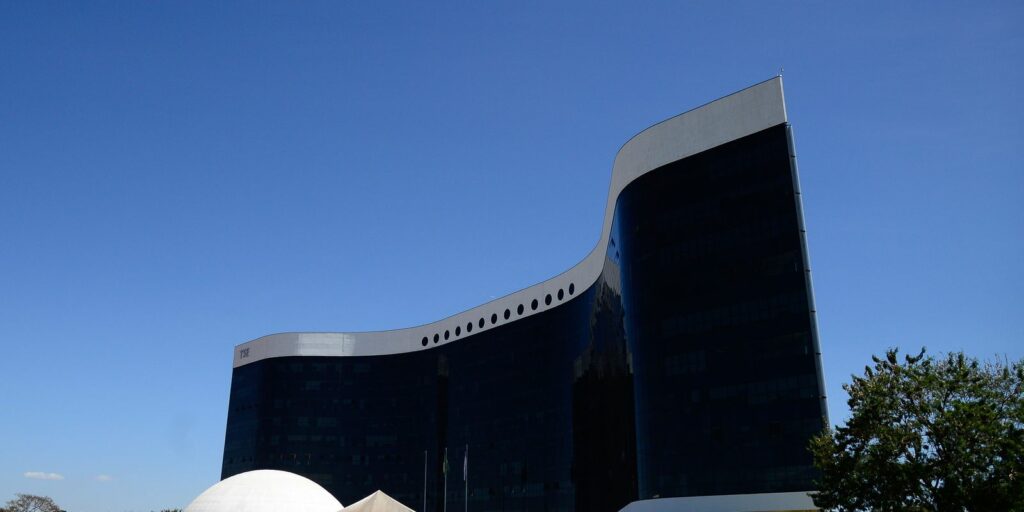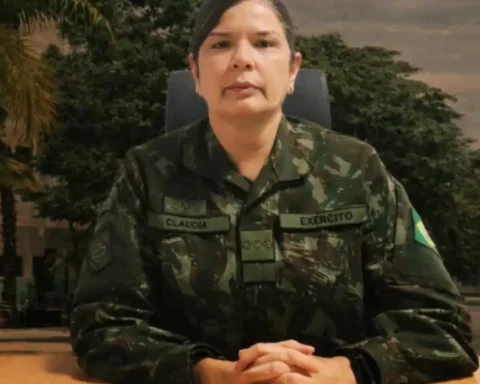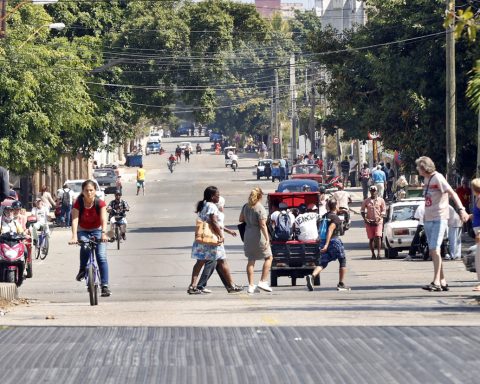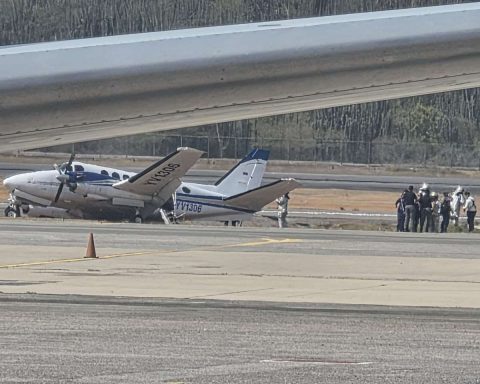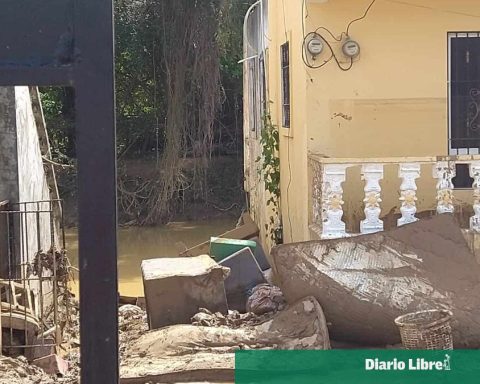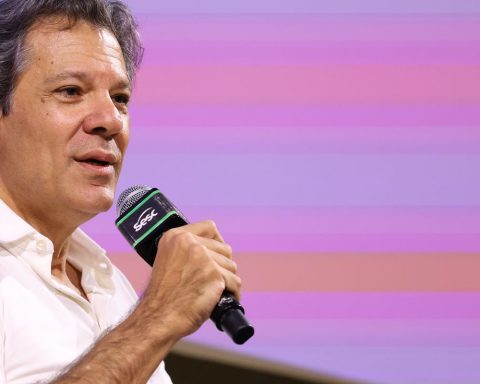A transversal group of 14 mayors –from the UDI to the PC–, belonging to the Chilean Association of Municipalities (AChM), requested this Tuesday the inclusion of the municipalities in the new constituent process. The communal authorities are convinced that their territorial experience can be useful to generate mechanisms that ensure citizen participation, with the objective –in their opinion– of avoiding a failure like that of the previous Convention. They are also inclined to promote faster and more concrete instances, taking advantage of the inputs already available, in order to optimize time and clear the way towards a new Constitution.
The call was led by the president of the AChM and mayor of Peñalolén, Carolina Leitao (DC), who is convinced that in this process towards a new Fundamental Charter, the community leaders must play a relevant role, assuming that -in her opinion – It is at the municipal level where the best spaces for citizen participation are generated. It was an idea that the municipal chief of Peñalolén shared in their respective meetings with President Gabriel Boric and with the presidents of the Senate, Álvaro Elizalde, and of the Chamber of Deputies, Raúl Soto.
Although Leitao believes that the councils could be optimal mechanisms for participation, he rules out that it is the only proposal, pointing out that it is an open conversation, along with denying, in addition, that the municipalities seek greater prominence or achieve a position at the negotiating table for continuity of the constitutional process. For the mayor, what the municipalities are looking for is that the mechanism that is finally agreed upon for a new Magna Carta includes citizen participation through the regional, local and municipal world. That is to say, her intention is that the constituent discussion be “localized”, whose framework they seek that this commitment hopefully be reflected in the eventual agreement signed by the different political parties with parliamentary representation.
-What is the main motivation for demanding greater municipal participation in the future constituent process? What can the local sphere contribute to this discussion?
-What we seek is to amend in some way the errors that could have been made, always understanding that, with greater participation, the legitimacy of a process, and the possibility that this process ends well, of course, is greater. And we believe that this can be achieved at the local and municipal level, because we have the territorial strength that helps us address these issues collectively, creating spaces for information and participation, and that is why we are once again making ourselves available, where we can even carry out intermediate validations, so that, when the process ends, it will be the opposite of what happened now, and it will conclude with a new Constitution approved by a large majority of Chilean men and women.
– Do you think that this idea that the constituent process be “localized”, with greater municipal interference, seeks to optimize time and speed up the discussion?
-That is why this municipal initiative seeks to speed up the process, understanding that it is something that must be resolved soon; where there must also be a transversal political agreement; and seeking the possibility of expanding participation in these spaces, precisely to achieve greater legitimacy of this process.
-Do you have any specific proposal on possible participation mechanisms that could be used in the eventual process towards a new Constitution?
-We have talked about the fact that there are many mechanisms that we should explore, where there was a certain agreement –which we must obviously continue talking–, that hopefully it will be a single mechanism for all. In other words, if a participation methodology is sought, hopefully all the municipalities would use it, in order to be able to methodologically validate a process. There are several options and they can be councils, citizen consultations – electronic, face-to-face or mixed – but everything is part of an open conversation and an agreement has not yet been reached on the mechanism that should be adopted.
-When you talk about town halls, is it in any way sought to reissue the instances convened by former President Michelle Bachelet? Is it a nod to said citizen call?
-When we talk about councils, they can be of different types. Not only did former President Bachelet do it, but it is a mechanism that has been used on other occasions as well. We mayors are used to generating this type of instance of participation. Now, what was discussed on one occasion was the intention to take advantage of the inputs that are available, avoiding starting from scratch, beyond the fact that legally one must start from a blank page. The truth is that there are already inputs on which there is already citizen participation that should be used. When we talk about councils, we are actually talking about instances of common participation, which of course we have to implement.
-There is agreement that the Congress will be the political space where important decisions will be made that will mark the fate of the constitutional discussion. Faced with this scenario, how do the municipalities intend to be heard and become relevant actors?
-The Congress has the mission of proposing an agreement formula to continue the process, but nobody said that it is the Congress that is going to resolve the constitutional discussion. That is why we believe that here there should obviously be greater citizen participation, assuming that what the municipalities are asking of Congress is that, in the mechanism that is resolved for a new Constitution, it should include citizen participation through of the local, regional and municipal world. What we are requesting is that this discussion be regionalized and localized, landing it in the municipal world.
-The agreement signed this Tuesday brought together a transversal group of community leaders –from the mayor of Santiago, Irací Hassler (PC), to that of Providencia, Evelyn Matthei (UDI)–, why do you think it is easier to reach this type of agreements at the municipal level than in other political spaces?
-In the municipal world, there are more things that unite us than divide us, beyond our ideological positions, and that helps us in some way to facilitate agreements. Now, the main agreement here is that we all have the conviction that the municipalities should be part of this process, which should be explicitly validated in the future agreement called by the presidents of the Chamber of Deputies and of the Senate. The truth is that there are so many coincidences of taking the temperature of the water every day, of the things that bother people or that people need, of course that helps us to agree much more easily.
-Can this be interpreted as a sign of pressure for those who lead the discussion of continuity of the constituent process –the presidents of both chambers of Congress– in the face of the possibility that the municipalities are also part of these conversations? How would you respond to a call of this nature?
-I am never going to refuse to participate in a conversation, of course I would. I am not saying either that it has to be a requirement for this to work. I believe that messages can be delivered to the parliamentary world without the need for us to participate directly in the talks. Now, if Parliament resolves at some point, regarding this discussion, to invite us to talk, welcome, and we will be available to do so there.







